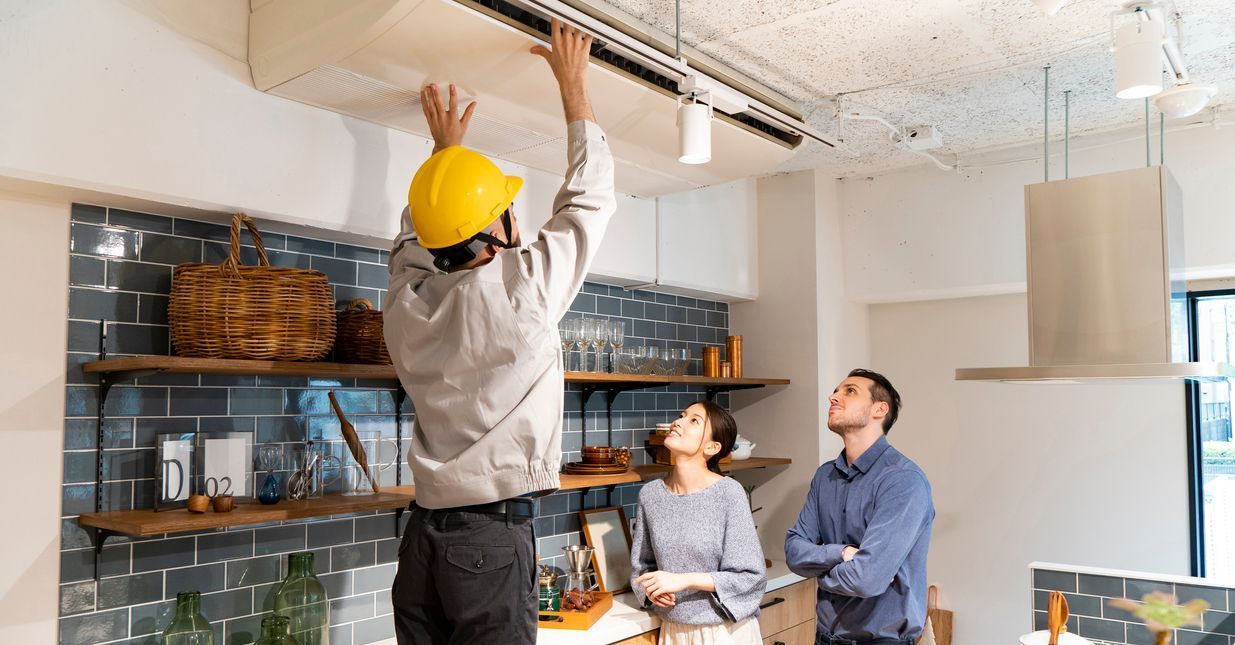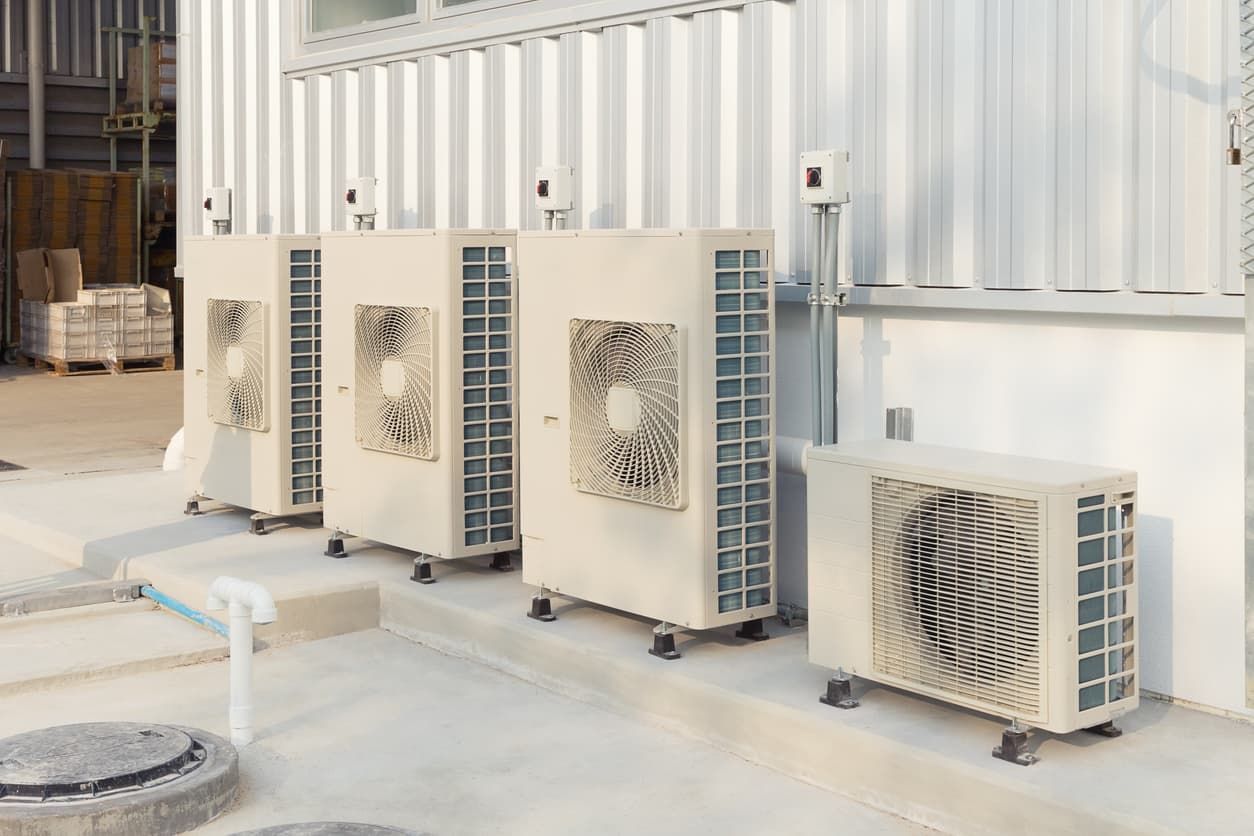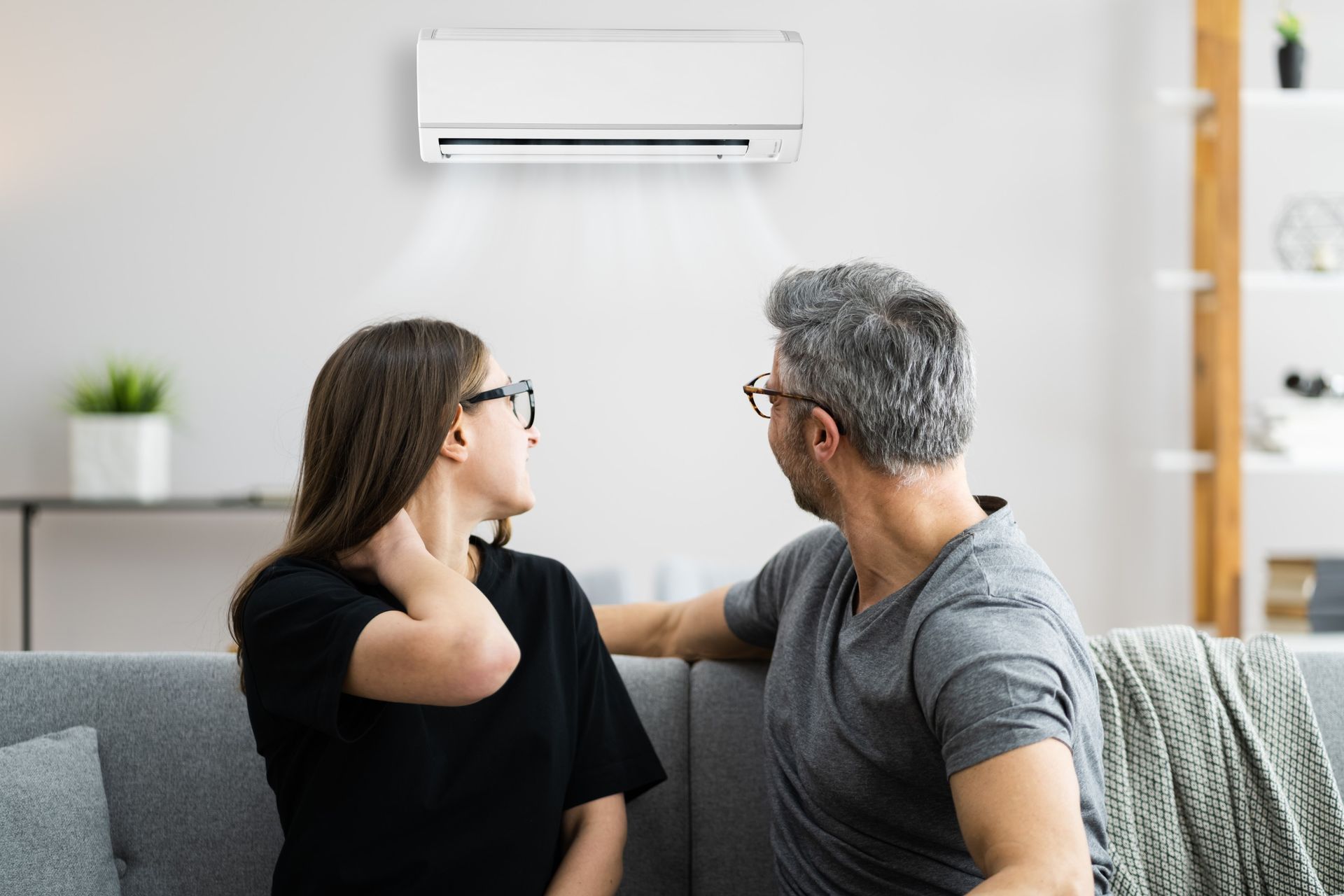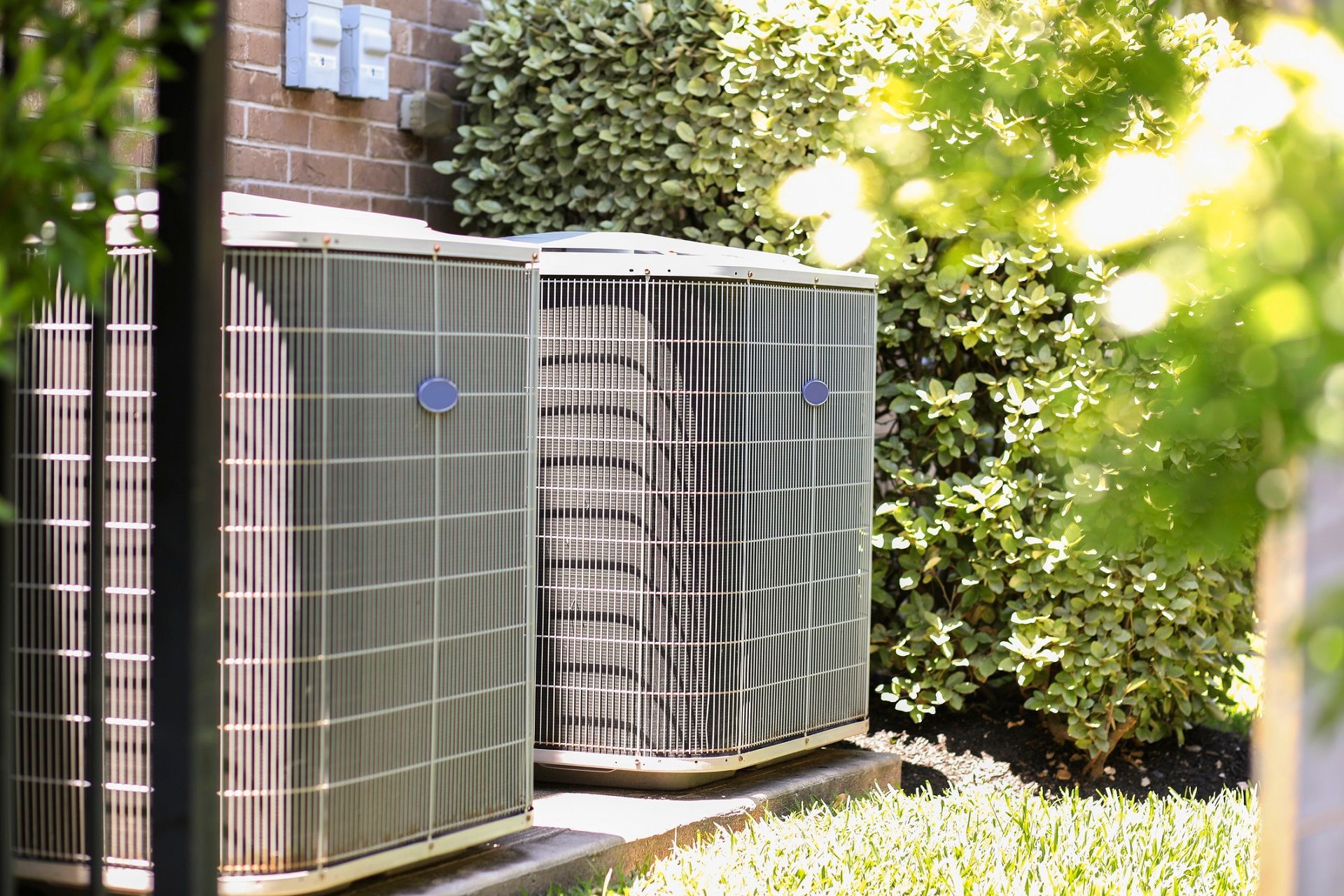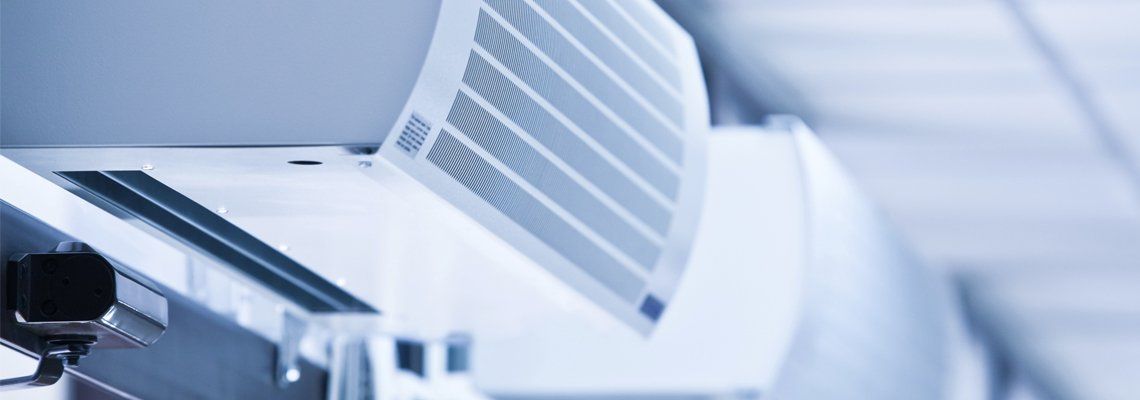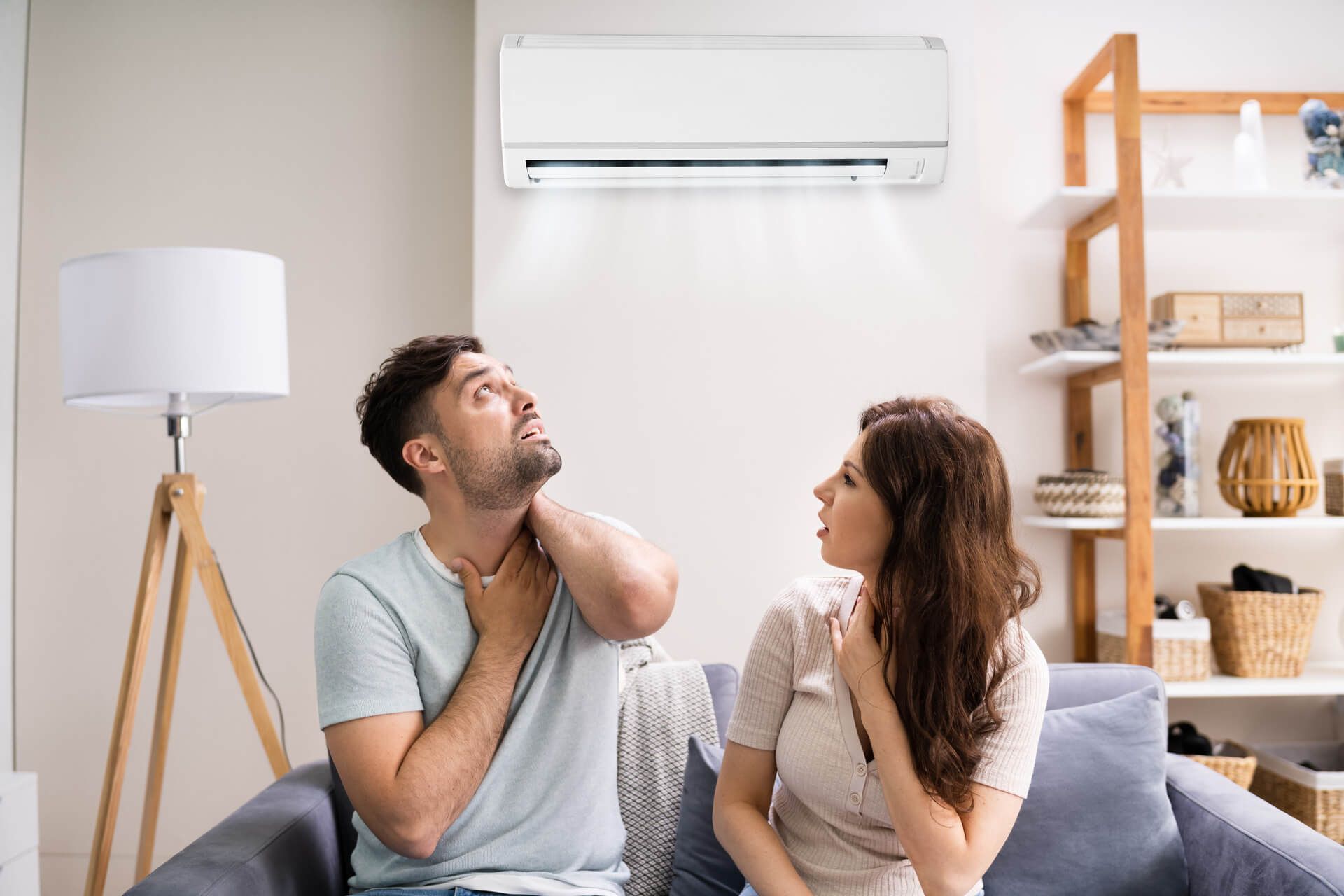damatoplumbing@gmail.com

Upgrade Your HVAC System for Improved Comfort Vineland NJ - 856-556-3434 - D'Amato Plumbing, Heating, and Cooling INC
Every homeowner knows the vital role a well-functioning HVAC system plays in ensuring comfort and tranquility in their living space. This system, responsible for heating, ventilation, and air conditioning, is the heartbeat of any home, regulating temperatures and ensuring clean, fresh air for a healthy living environment. Understanding the importance of an efficiently functioning HVAC system is the first step toward realizing why an upgrade might be necessary. A faulty or outdated HVAC system can lead to discomfort, high energy bills, and potential health risks due to poor air quality.
An upgraded HVAC system, on the other hand, can greatly improve the comfort of your home. With advancements in technology, modern HVAC systems are designed to provide optimal indoor conditions and superior comfort. They are efficient, and reliable, and offer a range of features that make them more user-friendly and effective. For instance, they come with smart thermostats that learn your temperature preferences over time, adjusting automatically for maximum comfort. They also have better filters that ensure the air in your home is not just the right temperature, but also clean and free from allergens.
In addition to improved comfort, upgrading your HVAC system also comes with other benefits such as energy efficiency, reduced noise, and increased property value. It's an investment that not only enhances your living experience but also contributes to a healthier, more sustainable world. So, whether you're dealing with an old HVAC system that's no longer performing efficiently, or you're simply looking to boost the comfort of your home, upgrading your HVAC system is a worthwhile consideration.
Why Upgrade Your HVAC System
Provides Better Temperature Variability
When contemplating reasons to upgrade your HVAC system, the list is extensive. To begin with, the benefits are substantial. An upgraded HVAC system will provide better temperature variability, resulting in increased comfort in your home. More advanced systems now offer features such as zone-specific temperature control, which allows you to customize the temperature in different areas of your home. In addition to comfort, these systems also enhance the quality of indoor air by reducing allergens and pollutants. This means cleaner and healthier air for you and your family.
The Drawbacks of an Outdated or Inefficient HVAC System
An outdated or inefficient HVAC system can have severe consequences. It can result in uneven heating or cooling, leading to discomfort and frustration. Moreover, it may pose health risks by fostering mold growth due to inadequate humidity control. Older systems are also prone to breakdowns, which could lead to expensive repair costs or even replacement if the damage is severe. Furthermore, these systems often consume more energy, leading to higher utility bills.
Costs Associated with Upgrading Your HVAC System
Many homeowners are concerned about the costs associated with upgrading their HVAC system. However, it's crucial to consider the cost-effectiveness of such an investment. Although the upfront costs can be significant, the long-term savings are much more beneficial. Modern HVAC systems are designed with energy efficiency in mind, which means they consume less energy and, consequently, lower your utility bills. Over time, these savings can offset the initial investment. Plus, an efficient, updated HVAC system can enhance your property's value, providing a positive return on investment when you decide to sell your home.
In conclusion,
upgrading your HVAC system is not only about improving comfort in your home but also about enhancing your lifestyle by promoting better health, saving money, and increasing the value of your property. Therefore, it's an investment that homeowners should seriously consider.
Components of an HVAC System to Consider Upgrading
In the following section, we will delve into the specific components of an HVAC system you should consider upgrading for improved comfort and efficiency. These components include the air conditioning units, heating units, ventilation system, and thermostat system.
Air Conditioning Units
Air conditioning units are crucial for maintaining a cool and comfortable environment during warmer months. Upgrading to an energy-efficient model can lead to significant savings on utility bills and provide you with precise temperature control. Modern AC units also come with improved filtration systems, providing cleaner air by reducing allergens and pollutants.
Heating Units
Heating units, on the other hand, ensure comfort during the colder months. An outdated heating unit may not only lead to discomfort but can also cause uneven heating and higher energy costs. Upgraded heating units are designed with efficiency in mind, providing uniform warmth while consuming less energy. Moreover, newer models are often quieter and easier to control, adding to the overall comfort.
Ventilation Systems
Ventilation systems are another critical component of your HVAC system. Proper ventilation ensures a steady flow of fresh air, eliminating pollutants and maintaining good indoor air quality. An upgraded ventilation system can control humidity levels more effectively, further enhancing the comfort and health of your living space.
The Thermostat System
Lastly, the thermostat system is the control center of your HVAC system. Modern, smart thermostats offer precise control over your home's temperature and humidity levels. They can be programmed to adjust the settings automatically based on your schedule, helping you save energy while ensuring optimal comfort. Some even offer remote control through smartphone apps, adding a level of convenience to your home's heating and cooling system. By upgrading these components, homeowners can experience a significant improvement in comfort, air quality, and energy efficiency.
Understanding the HVAC Upgrade Process
In the section 'Understanding the HVAC Upgrade Process', we'll delve into the steps involved in upgrading your HVAC system, finding a reputable HVAC professional, cost estimation, budgeting, and the timeline of the upgrade process. Each step is critical for ensuring that your HVAC upgrade meets your comfort, quality, and efficiency goals.
Identifying the Components that Need Upgrading
The first step in the HVAC upgrade process is understanding what it involves. This includes identifying the components that need upgrading - be it the air conditioning units, heating units, ventilation systems, or thermostat systems - and understanding how modern units can enhance comfort, air quality, and energy savings. Researching the latest, most efficient models is key to making informed decisions.
Find a Reputable HVAC Professional
Next, it's essential to find a reputable HVAC professional. A certified HVAC contractor will not only have the requisite training and experience but will also be up-to-date with the latest HVAC technologies and trends. They can provide valuable advice on what models to choose, how to maximize energy efficiency, and how to maintain your system for longevity.
Cost Estimation and Budgeting
Cost estimation and budgeting are the next steps in the upgrade process. The cost of upgrading your HVAC system will depend on several factors, including the type of system you choose, the complexity of the installation, and the rates of your HVAC contractor. Having a clear budget will help you choose a system that gives you the best value for your money.
Understand the Timeline of the Upgrade Process
Lastly, understanding the timeline of the upgrade process is essential. The time it takes to upgrade your HVAC system will depend on factors like the complexity of the job, the availability of your contractor, and any unexpected challenges that may arise during the process. Having a timeline can help you plan effectively and minimize disruption to your comfort.
Remember, upgrading your HVAC system is a significant investment that can greatly improve the comfort of your home. By understanding the upgrade process, you can make an informed decision that suits your comfort needs and budget.
Maintaining Your Upgraded HVAC System
Routine Maintenance
Once you have successfully upgraded your HVAC system, it's time to focus on maintaining it. Routine maintenance is crucial for elongating the life and efficiency of your HVAC system. Regularly scheduled checks can help identify potential issues before they become major problems, saving you money and discomfort in the long run. It also ensures your system runs efficiently, reducing energy consumption and subsequent bills.
Understanding Warranties and Service Contracts
Understanding warranties and service contracts is another vital aspect of maintaining your upgraded HVAC system. Most HVAC systems come with a manufacturer's warranty that covers any parts that may fail within a certain period. Some HVAC contractors also offer service contracts, which typically include regularly scheduled maintenance and discounts on repairs. Understanding these warranties and contracts can provide peace of mind and protect your investment.
DIY Maintenance Tips and Tricks
For those who prefer a hands-on approach, there are several DIY maintenance tips and tricks that can help you keep your HVAC system in good shape. Simple tasks like changing filters regularly, cleaning outdoor units, and keeping vents and ductwork clean can go a long way in maintaining the efficiency of your HVAC system. However, for more complex tasks like checking refrigerant levels or electrical connections, it's advisable to hire a professional.
Remember, just like you wouldn't neglect regular oil changes on a new car, you shouldn't neglect the regular maintenance of your new HVAC system. By understanding warranties, adhering to service contracts, and doing some DIY maintenance, you can ensure your HVAC system will provide comfort and efficiency for years to come.
Conclusion
In conclusion, the importance of an HVAC system upgrade cannot be overstated. An older, inefficient system can compromise your comfort, contribute to higher energy costs, and even affect your health due to poor air quality. By upgrading your HVAC system, you can enjoy a higher level of comfort, save on energy costs, and promote a healthier living environment. In summary, upgrading your HVAC system comes with a multitude of benefits. From the enhanced comfort brought about by consistent temperature regulation and improved air quality, to the cost savings associated with energy efficiency and reduced repair expenses, an HVAC upgrade is a smart investment.
Furthermore, an upgraded system is often quieter, adding to the tranquility of your home. We cannot emphasize enough the profound difference a modern, efficient HVAC system can make in your home. So why wait? Make the decision today to upgrade your HVAC system. As we’ve seen, proper maintenance – a mixture of DIY tasks and professional servicing – can ensure the longevity and efficiency of your system. Therefore, not only will an upgrade enhance your comfort, but it can also offer significant savings in the long run.
Don't delay in making your home a more comfortable and energy-efficient space. Upgrade your HVAC system with D'Amato Plumbing, Heating, and Cooling INC. With their expertise, you'll receive efficient installation and reliable service, ensuring your home stays comfortable and energy-efficient for years to come.
Name, Address, and Phone
D'Amato Plumbing, Heating, and Cooling INC.
1200 West Blvd, Vineland, New Jersey, 08360, US
856-556-3434
Social Media’s
https://www.facebook.com/DAmato-Plumbing-Heating-530817947105755/
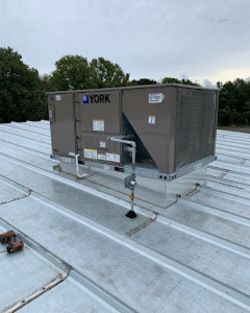
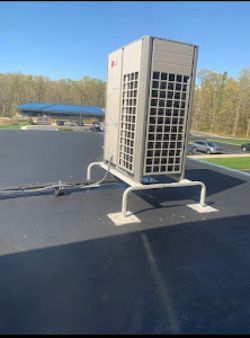
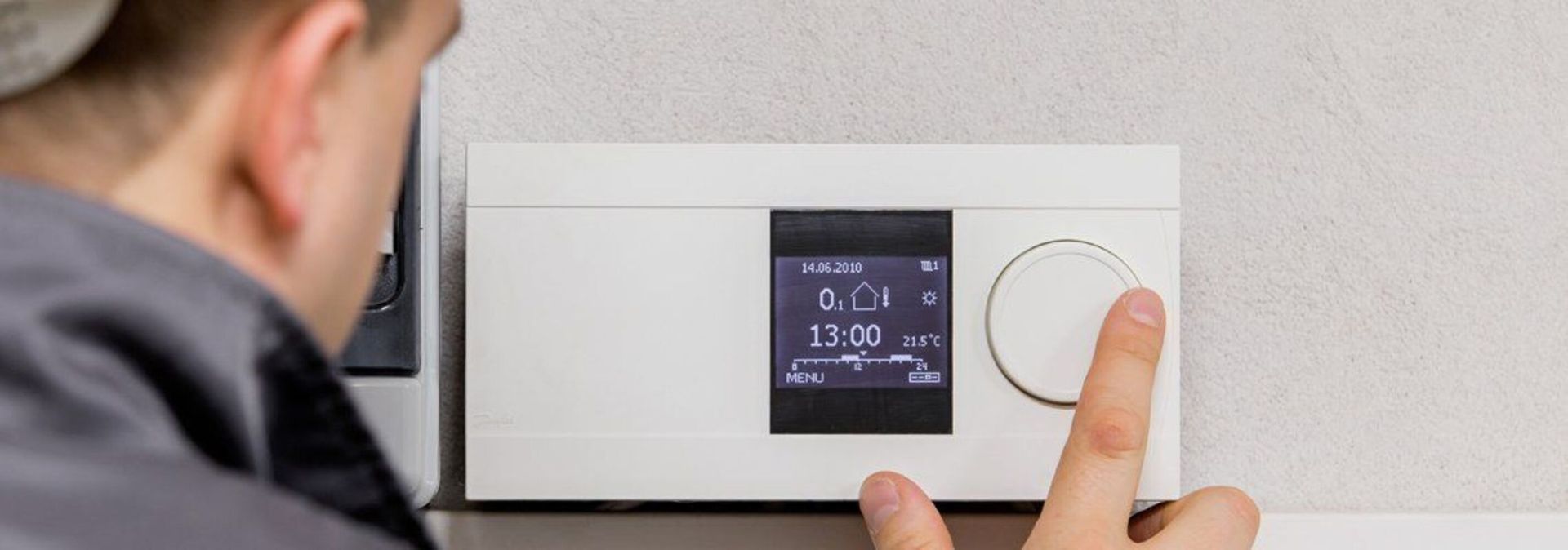
1200 West Blvd, Vineland, NJ 08360





